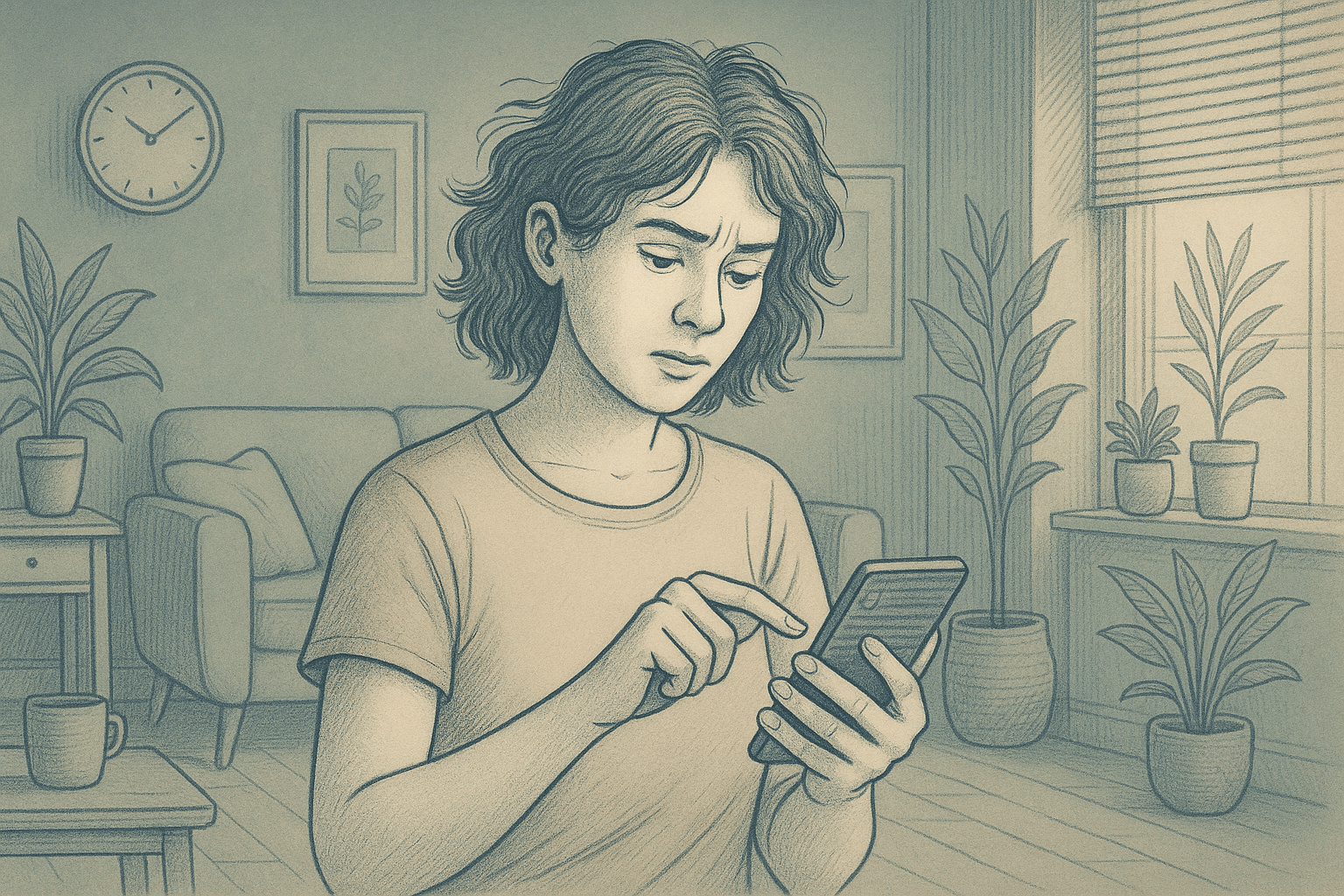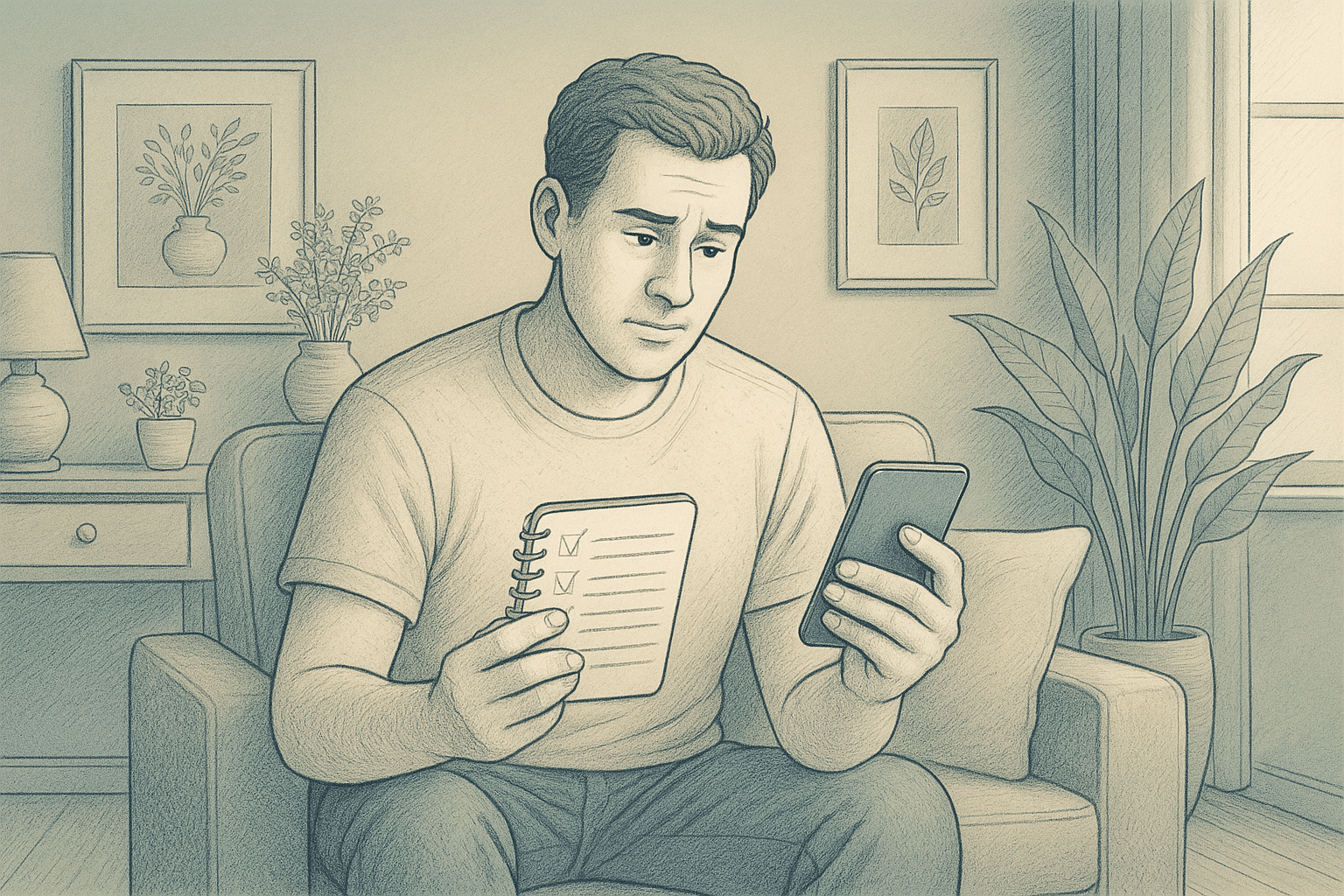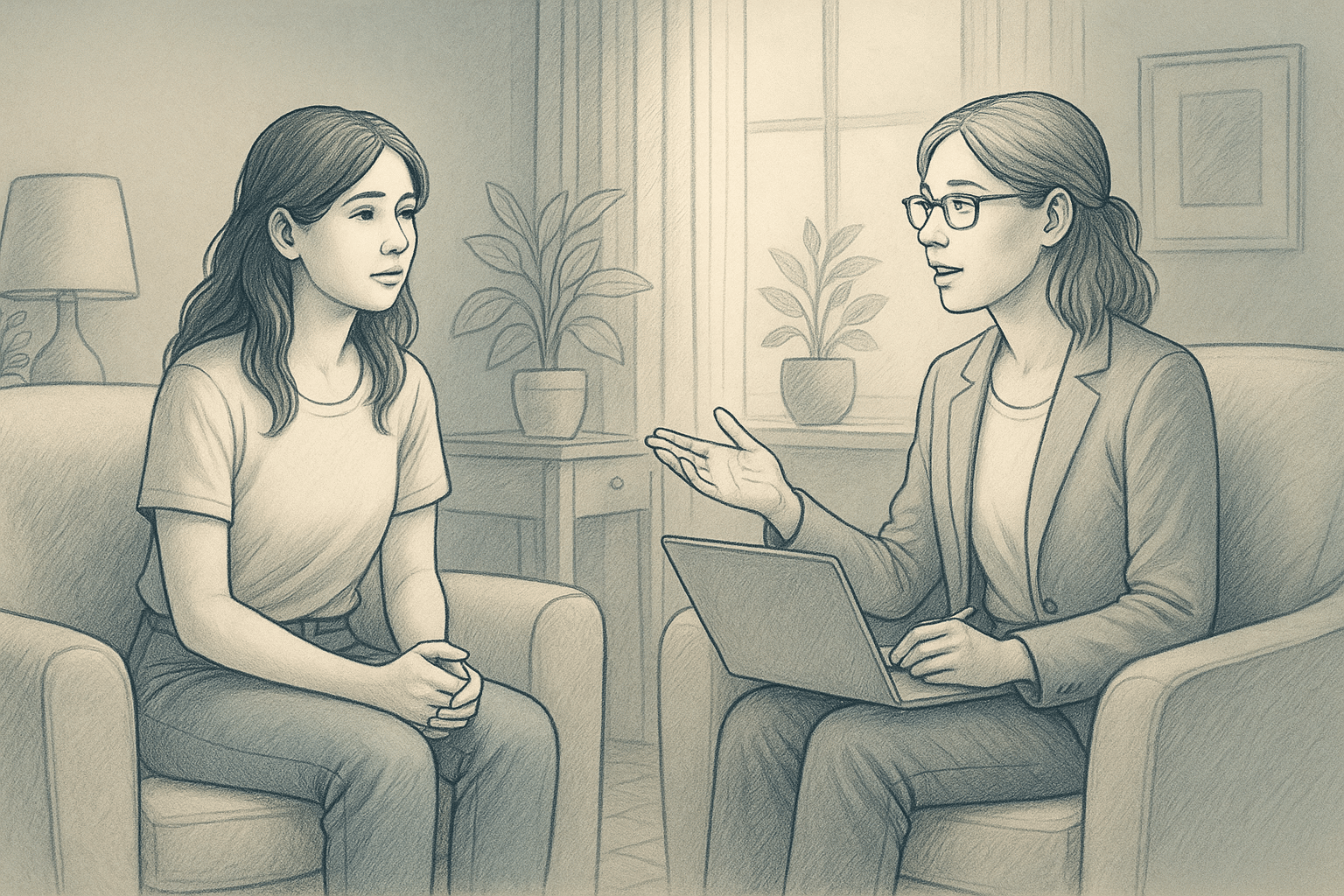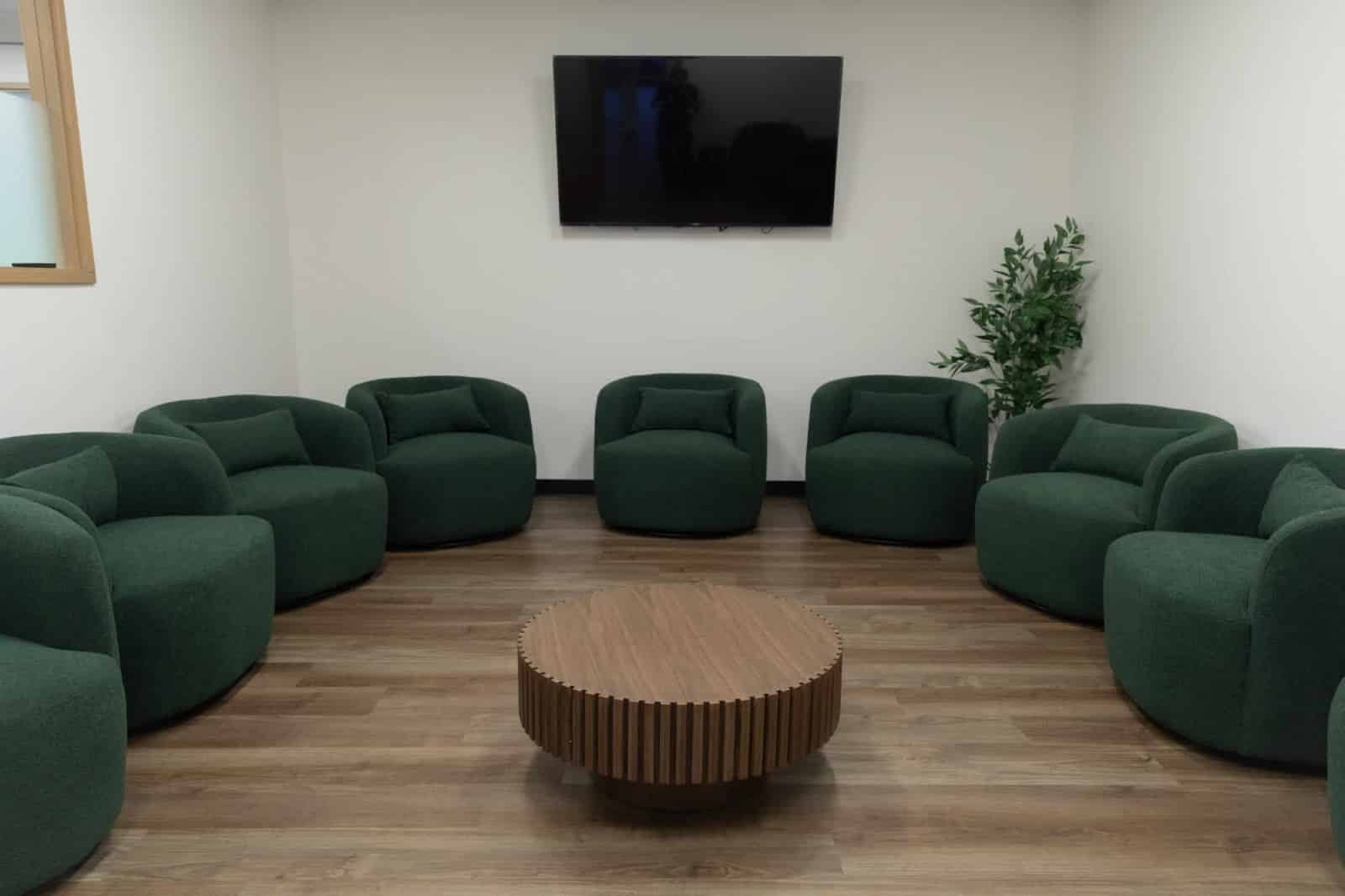
Key Takeaways
- ADHD daily trackers are essential tools that provide structure and organization, helping individuals manage tasks, appointments, and symptoms more effectively.
- Consistent usage and incorporating your tracker into daily routines significantly improves time management and productivity for people with ADHD.
- Choosing between digital and paper trackers depends on your preference. Digital trackers offer convenience, while paper trackers can be more intuitive.
- Tracking symptoms over time reveals valuable patterns and triggers so that you can have more informed discussions with your healthcare provider.
- Mission Connection’s approach to ADHD treatment incorporates personalized tracking systems alongside professional therapy and medication management. We’ll create a comprehensive treatment plan that addresses all aspects of ADHD management.
ADHD Daily Tracker Overview
Definition and Purpose
An ADHD daily tracker is a tool specifically designed to help individuals with ADHD manage their daily activities. It can take many forms, from a simple notebook to a sophisticated app. The primary purpose is to provide a structured way to organize tasks, appointments, and other important information.
By consistently using a daily tracker, you can better understand your patterns and habits, which is crucial for managing ADHD effectively. It serves as a “second brain,” allowing you to offload some of the mental load associated with remembering tasks and deadlines.
Benefits of Using a Daily Tracker
One of the most significant benefits of using an ADHD tracker is improved time management. With your tasks and deadlines clearly laid out, it’s easier to prioritize them based on complexity and urgency. This can help reduce the feeling of being overwhelmed, a common experience for those with ADHD.
Another key benefit is enhanced focus. By having a clear plan for the day, you can better direct your attention to the tasks that matter most. This can lead to increased productivity and a greater sense of accomplishment.
Additionally, using a daily tracker can aid in symptom monitoring. By tracking your symptoms over time, you can identify patterns and triggers, which can be invaluable when working with a healthcare provider to manage your ADHD.
Common Myths About ADHD Trackers
Despite their benefits, there are several myths about ADHD trackers that can prevent people from using them effectively. One common myth is that trackers are too rigid and don’t allow for flexibility. In reality, a well-designed tracker can be highly customizable, allowing you to adjust it to fit your unique needs.
Another myth is that trackers are only for people who are highly organized. While it’s true that using a tracker requires some level of organization, it’s also a tool that can help you develop those skills over time.
Finally, some people believe that digital trackers are inherently better than paper ones, or vice versa. The truth is that the best type of tracker is the one that works for you, whether it’s digital, paper, or a combination of both.
Mission Connection offers flexible outpatient care for adults needing more than weekly therapy. Our in-person and telehealth programs include individual, group, and experiential therapy, along with psychiatric care and medication management.
We treat anxiety, depression, trauma, and bipolar disorder using evidence-based approaches like CBT, DBT, mindfulness, and trauma-focused therapies. Designed to fit into daily life, our services provide consistent support without requiring residential care.
Designing Your ADHD Daily Tracker

Essential Components
When designing your tracker, start with the basics. A well-rounded ADHD daily tracker should include the following components:
- Task List: A section to list all tasks you need to complete each day.
- Prioritization: A method to rank tasks by importance and urgency.
- Time Slots: Allocated time blocks for each task to manage your day effectively.
- Notes Section: A space for additional thoughts, reminders, or reflections.
These components provide a solid foundation for your tracker, ensuring it covers all essential aspects of your day.
Customization Options
You can adjust your tracker to include specific elements that address your unique challenges and preferences. For example, if you struggle with maintaining focus, consider adding a section for tracking breaks or using a timer to keep you on task.
Additionally, personalizing your tracker with colors, stickers, or motivational quotes can make it more engaging and enjoyable to use.
Digital vs. Paper Trackers
Choosing between a digital or paper tracker depends on your lifestyle and personal preferences. Digital trackers offer the convenience of accessibility across devices and can include features like reminders and notifications. They are ideal if you prefer technology and need a portable solution.
On the other hand, paper trackers can provide a tactile experience that some find more satisfying. They allow for creativity in layout and design and can be a great option for people who love writing things down. Consider trying both methods to determine which suits you best.
Must-Have Features for Your Digital Daily Tracker

Task Prioritization Feature
Task prioritization helps you focus on what truly matters allowing you to avoid getting sidetracked by less important tasks. Many ADHD trackers come with built-in prioritization tools that allow you to categorize tasks based on urgency and importance.
Additionally, some trackers offer visual cues, such as color coding or progress bars, to help you stay on top of your priorities. These visual aids can be particularly helpful if you struggle with keeping track of multiple tasks.
Time Management Tools
Effective time management is another key feature of ADHD trackers. By breaking down your day into manageable chunks, you can avoid feeling overwhelmed by the sheer number of tasks on your to-do list.
Some apps come with features like time blocking, where you allocate specific blocks of time to different tasks or activities. This helps you focus on one task at a time and minimizes distractions. Additionally, setting timers can keep you on track so that you don’t spend too much time on any one task.
Symptom Monitoring and Analysis
An effective tracker allows you to log your symptoms and note any patterns or triggers. Over time, this data can provide valuable insights into how your ADHD affects your daily life.
By analyzing this information, you can work with your healthcare provider to make informed decisions about your treatment plan. You may learn, for instance, that certain activities or times of day exacerbate your symptoms, so you can then make adjustments accordingly.
Effective Usage Tips of ADHD Daily Tracker
Consistency and Routine

Start by setting aside a specific time each day to update your tracker. This could be in the morning, as you plan your day, or in the evening, as you reflect on what you’ve accomplished. By incorporating your tracker into your daily routine, you’ll be more likely to use it consistently and reap its full benefits.
Adjusting the Tracker to Your Needs
No two people with ADHD are the same, so customize your tracker to fit your specific needs. This might mean adjusting the layout, adding new sections, or removing features that don’t serve you. Experiment with different formats and styles to find what works best for you.
Review and Reflect Regularly
Regularly reviewing and reflecting on your tracker entries can provide valuable insights into your progress and areas for improvement. Take time each week to go over your entries and assess what’s working and what isn’t.
Share Details with Your Healthcare Provider

Systematically sharing your tracker data with healthcare providers transforms your personal observations into clinically valuable information that can enhance your treatment plan. These detailed records provide objective evidence that memory alone cannot replicate, especially given the recall challenges often associated with ADHD.
This collaborative approach allows your therapist to make informed decisions about medication adjustments, behavioral strategies, or additional support services unique to your condition.
Your ADHD Tracker Journey: Find Support at Mission Connection
At Mission Connection, we understand that trackers are just one piece of effective ADHD management. Our comprehensive treatment approach combines professional guidance with practical tools like personalized tracking systems.

With both in-person and telehealth options at our facilities in California, Virginia, and Washington, our experienced clinicians help interpret the patterns revealed by your tracker, transforming these insights into actionable treatment adjustments.
Don’t face ADHD challenges alone. Contact us and let Mission Connection’s supportive team help you develop the skills and systems that turn daily struggles into opportunities for growth and success.
Call Today 866-833-1822.
Frequently Asked Questions (FAQs)
What Is an ADHD Daily Tracker?
An ADHD daily tracker is a tool designed to help individuals with ADHD manage their daily tasks, appointments, and symptoms. It can be a physical planner or a digital app, and its primary purpose is to provide structure and organization.
How Can a Tracker Help Manage ADHD?
A tracker helps manage ADHD by providing a clear and organized way to track tasks, appointments, and symptoms. It enhances time management and task prioritization, making it easier to focus on high-priority activities.
Are Digital or Paper Trackers Better?
The choice between digital and paper trackers depends on personal preference. Digital trackers offer convenience and accessibility, with features like reminders and notifications. They’re ideal if you prefer technology and want to access their tracker on the go.
On the other hand, paper trackers provide a tactile experience and can be customized with handwritten notes and drawings.
What Should I Do If I Forget to Use It?
If you forget to use your tracker, don’t worry, it’s a common challenge. The first step is to identify why you forgot. Was it due to a busy schedule, or did you simply overlook it?
Once you understand the reason, implement strategies to help you remember, such as setting phone reminders or placing your tracker in a visible location.
How can Mission Connection help with ADHD management beyond tracking?
Mission Connection Healthcare offers comprehensive ADHD treatment that complements self-tracking strategies. Our professional services include personalized therapy approaches like Cognitive Behavioral Therapy (CBT) and behavioral therapy, medication management with experienced clinicians, and flexible treatment options including intensive outpatient programs and telehealth services.
Our therapists provide both the tools and professional guidance needed to transform daily challenges into opportunities for growth and improved functioning, addressing not just the symptoms but the underlying mechanisms of ADHD.








